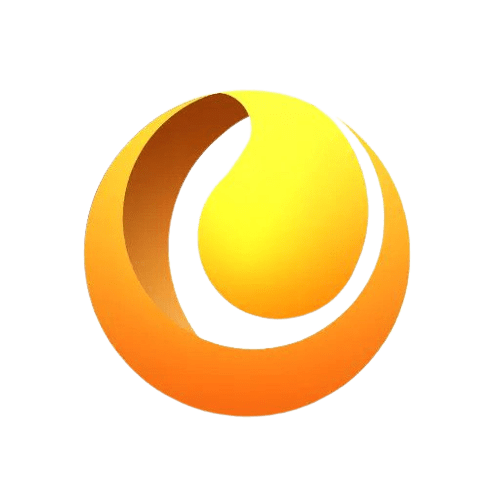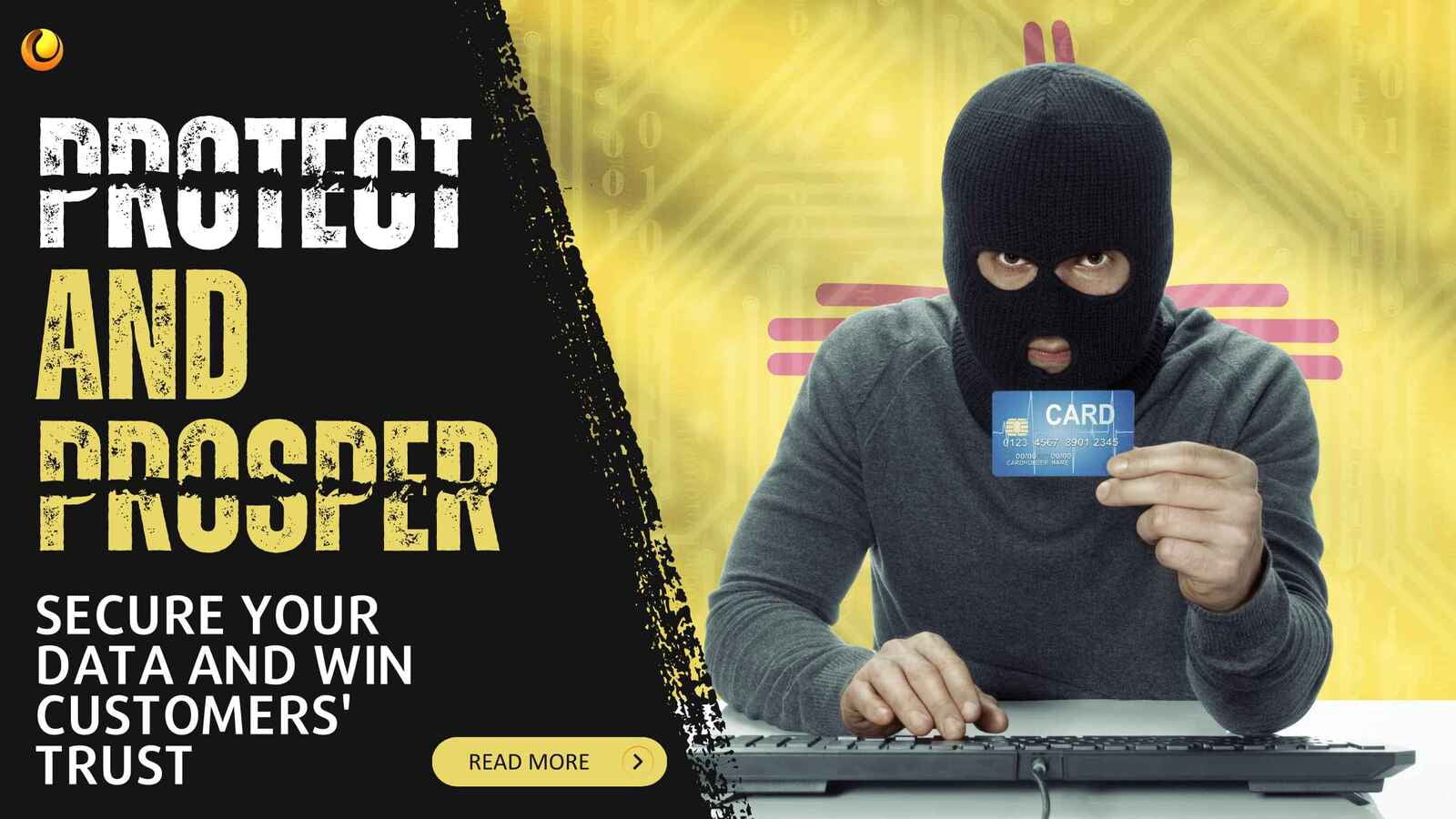
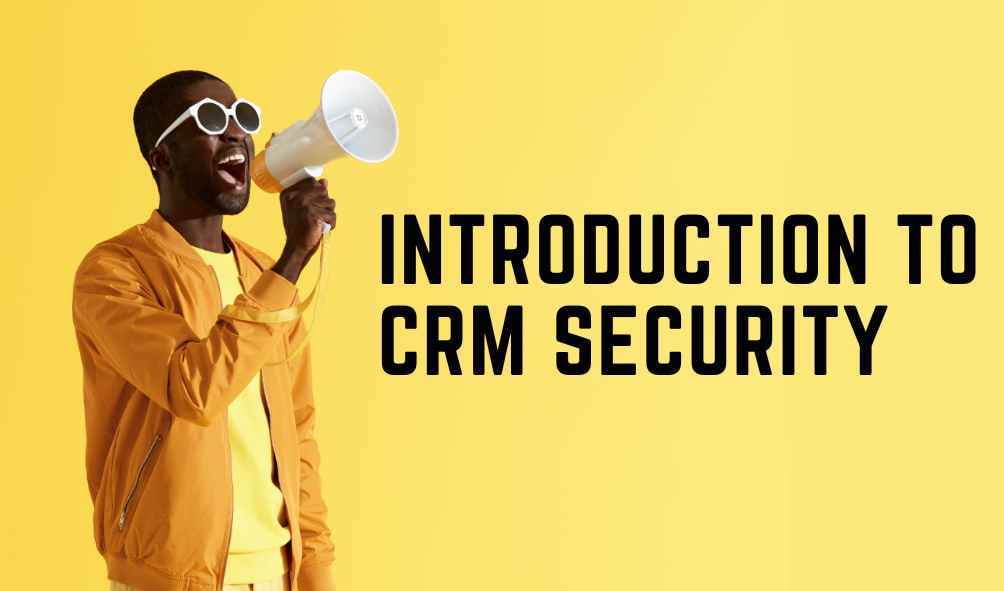
Introduction
Your CRMsystem is a goldmine of valuable customer data, including their contact info, purchase history, and preferences. This data is super important for understanding your customers, personalising marketing campaigns, and delivering top-notch customer service.
But guess what? Hackers find it just as enticing. Yep, without proper security measures, they can swoop in, exploit vulnerabilities, and wreak havoc on your CRM system, messing with customer data for malicious purposes. Yikes! So, protecting your customer data and preserving your business reputation should be right at the top of your to-do list. Lucky for you,
in this blog post, we're diving deep into CRM security, sharing some actionable tips to muscle up your defenses. Let's get started, shall we?
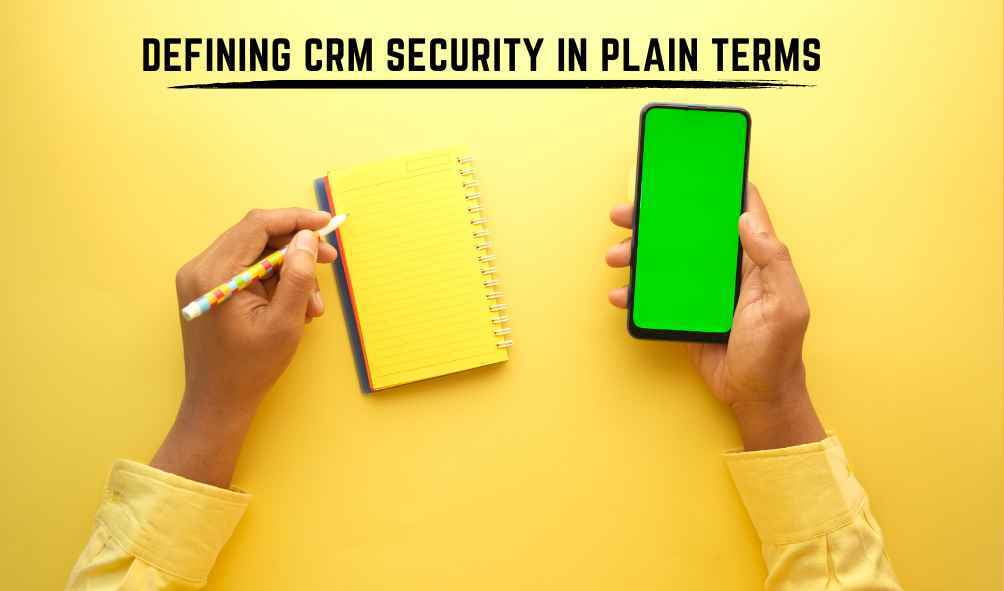
Defining CRM Security in Plain Terms
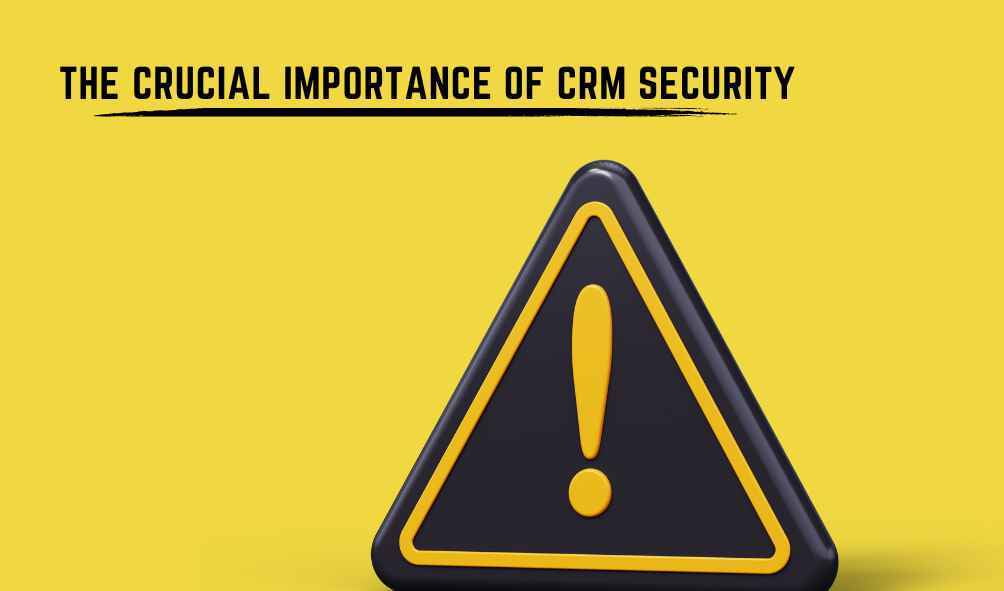
The Crucial Importance of CRM Security
CRM security is super important for a bunch of reasons. In today's digital world, where customer data is like gold, businesses have to make sure they're taking strong security measures to keep that info safe. Let's dive into why it is such a big deal:
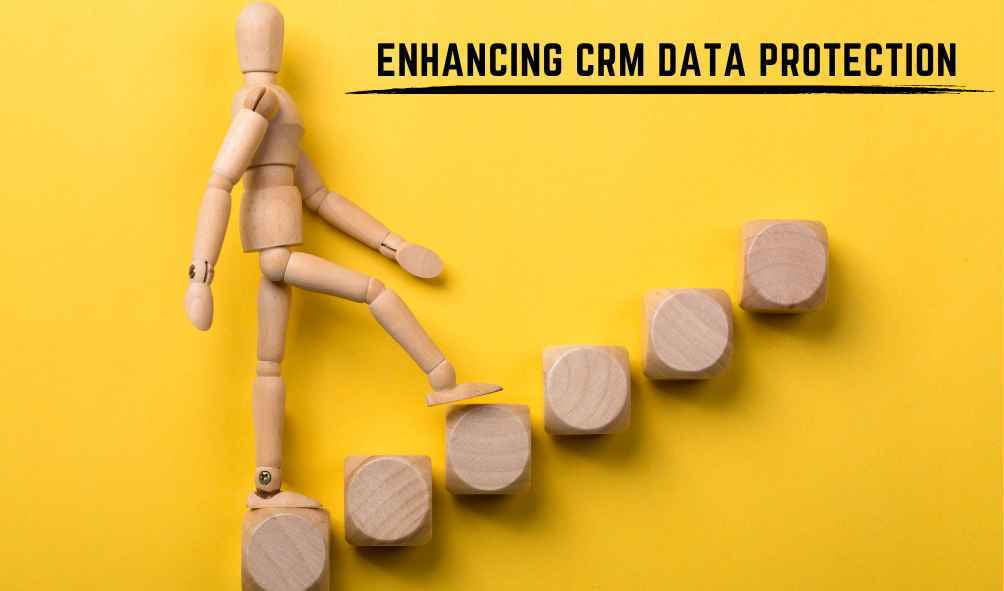
Enhancing CRM Data Protection
To effectively safeguard your CRM data, there are some important actions you should prioritise. Let's dive into them:
1. Choose a secure CRM system: When you're selecting a CRM system, it's crucial to go for one that has strong built-in security features. Look for things like encryption, access controls, and secure authentication protocols. You want a system that has a solid reputation and a track record of prioritising data protection.
2. Employ strong passwords: We can't stress this enough - using strong passwords for your CRM system is a must! Encourage your employees to create complex passwords that include a mix of uppercase and lowercase letters, numbers, and special characters. It's a good practice to regularly update passwords too, so consider implementing policies that enforce password changes and discourage common or easily guessable passwords.
3. Keep your CRM system up to date: Staying on top of security updates is crucial for keeping your CRM system secure. Make sure you regularly check for updates provided by the CRM system provider and install them promptly. These updates often include important security patches that help protect against new threats. By keeping your system up to date, you ensure that it has the latest security measures in place.
4. Educate your employees: People can be a weak link in data security, so it's important to educate your employees about the significance of CRM security. Provide them with the necessary knowledge and skills to safeguard customer data effectively. Conduct regular training sessions to teach them best practices for data protection, such as recognising phishing attempts, handling customer information securely, and reporting any suspicious activities they come across.
5. Regularly back up your data: It's crucial to establish a regular backup routine for your CRM data. This ensures that you have a secure copy of your data that can be restored if there's a data breach, system failure, or accidental loss. Consider using automated backup solutions and storing your backups in off-site locations or utilising reliable cloud-based backup services. And remember, it's important to test the restoration process periodically to make sure your backed-up data is intact and accessible.
By prioritising these actions, you'll significantly enhance the protection of your CRM data and minimise the risks of data breaches or unauthorised access. Just keep in mind that data protection is an ongoing process, and it's essential to regularly review and update your security measures to stay ahead of evolving threats.
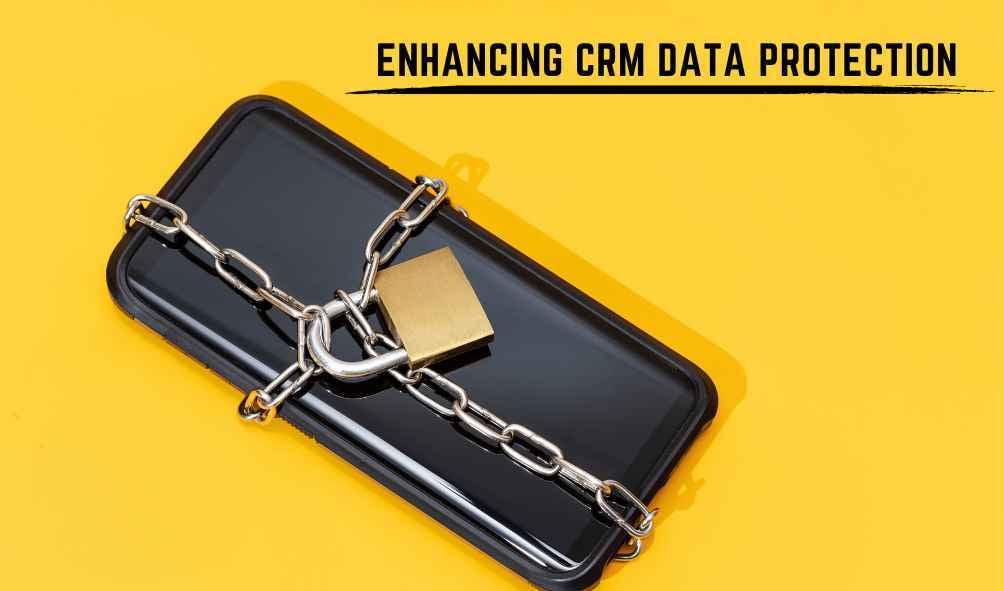
Identifying Common Security Threats
There are several threats that organisations should be aware of. These threats can put your valuable data and customer information at risk. Let's take a closer look at some of the most common threats you may encounter:
1. Phishing attacks: Phishing attacks are like cunning traps set by cybercriminals. They send fraudulent emails that appear to be from trustworthy sources like banks or credit card companies. These emails often contain tricky links that lead you to malicious websites designed to steal your login credentials. It's important to be cautious and double-check before clicking on any links in emails to avoid falling victim to these sneaky attacks.
2. Malware attacks: Imagine a hidden intruder sneaking into your computer or network with a nefarious agenda. That's exactly what malware attacks are like. Cybercriminals use malicious software to infiltrate your systems, allowing them to steal data, wreak havoc on your system, or even pave the way for further cyberattacks. To protect yourself, make sure you have reliable anti-malware software, regularly update your systems, and exercise caution when downloading files or visiting unfamiliar websites.
3. Insider threats: It's not just external threats you need to worry about. Sometimes, the danger comes from within. Insider threats involve employees who have authorised access to your CRM data misusing their privileges. This can include selling customer data to third parties, exploiting sensitive information for personal gain, or intentionally deleting important data. Implementing strong access controls, conducting regular security audits, and fostering a culture of data integrity and confidentiality are crucial to prevent insider threats.
4. Social engineering attacks: Have you ever been tricked by someone pretending to be someone they're not? That's basically what social engineering attacks are all about, you know? These attacks target human vulnerabilities rather than technical weaknesses. Cybercriminals use manipulation and deception to extract sensitive information or convince individuals to perform actions that compromise CRM security. Stay vigilant and educate yourself and your team about common social engineering tactics to avoid falling into their traps.
5. Data breaches: The dreaded data breach can have severe consequences for your CRM security. It occurs when unauthorised individuals gain access to your sensitive customer data, leading to exposure or theft. Weak passwords, unpatched software vulnerabilities, insecure network configurations, or even actions by insiders can contribute to data breaches. To minimise the risk, use strong authentication measures, encrypt your data, and keep a close eye on any suspicious activities within your CRM system.
By being aware of these common threats and taking proactive steps to protect your CRM system, you can safeguard your valuable data and maintain the trust of your customers. Remember to combine technical safeguards with employee training and ongoing security assessments to keep your CRM security robust in today's ever-evolving threat landscape.
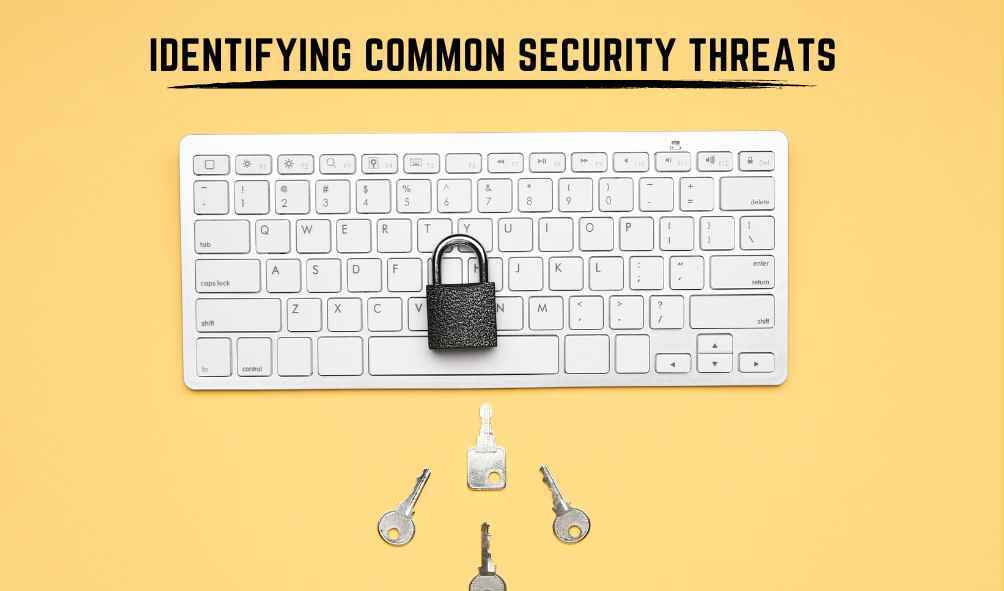
Detecting and Responding to CRM Security Incidents
We want to make sure your customer data is safe and your CRM system remains intact. So, let's talk about some practical steps you can take to enhance your security practices:
1. Keep a watchful eye on your CRM system: It's important to monitor your CRM system for any signs of trouble. Use security tools that can keep an eye out for suspicious activities, like unauthorised login attempts or strange patterns of data access. These tools act as your CRM security guardians, alerting you to potential threats before they cause serious damage.
2. Have a plan of action in place: Prepare for the worst by establishing a solid incident response plan. This plan should cover all the necessary steps to take when faced with a CRM security incident. It should include guidelines on how to notify affected customers, contain the incident, and initiate recovery procedures. Having a well-thought-out plan ensures that everyone knows what to do when the unexpected happens.
3. Test your security plan regularly: Don't just set it and forget it. Regularly test your security plan to ensure it's up to the task. Simulate potential security incidents and evaluate how well your plan holds up. By doing so, you can identify any vulnerabilities or gaps that need to be addressed. This way, you'll be fully prepared to handle any security incident that may come your way.
But wait, there's more you can do to strengthen your CRM security:
4. Stay one step ahead with advanced threat detection: Monitoring is great, but consider going a step further by implementing advanced threat detection tools. These tools use clever techniques like machine learning and behavioural analysis to spot even the most sophisticated threats. They provide real-time alerts and proactive defence mechanisms to keep your CRM system safe from malware, phishing attacks, and insider threats.
5. Form a security incident response team: It's essential to have a dedicated team ready to spring into action when a CRM security incident occurs. Bring together experts from various departments, such as IT, cybersecurity, legal, and communications. Assign clear roles and responsibilities to team members and make sure they receive proper training. With a well-prepared team in place, you can tackle security incidents head-on.
6. Give access controls some muscle: Control who gets access to your CRM system by implementing strong user access controls. Encourage the use of complex passwords, multi-factor authentication, and role-based access. Regularly review and update user privileges to ensure that employees only have the access they need. This minimises the risk of unauthorised access and strengthens your CRM security.
7. Stay in the loop with proactive threat intelligence: Don't be caught off guard by new threats. Stay informed about the latest security risks relevant to your CRM system. Subscribe to threat intelligence feeds, participate in cybersecurity forums, and collaborate with other organisations. By being proactive, you can implement preventive measures and respond effectively to emerging threats.
8. Put your CRM system to the test with regular security audits: Take a closer look at your CRM system by conducting periodic security audits. Engage independent auditors to evaluate your security controls and identify any weaknesses or compliance gaps. These audits provide valuable insights and allow you to take corrective action before any serious damage occurs.
9. Empower your employees with security knowledge: Your employees play a vital role in CRM security. Educate them about security best practices, like spotting phishing attempts, handling sensitive customer data, and reporting suspicious activities. Conduct regular security awareness training sessions to keep everyone up to date with the latest threats. With a well-informed team, you'll have an extra line of defence against potential security incidents.
Remember, It is an ongoing effort that requires continuous attention. By following these steps and adapting your security practices as needed, you can bolster your defences and safeguard your valuable customer data.
Conclusion
Here's the deal: CRM security is absolutely crucial in today's world. It's all about protecting your customer data and keeping your business's reputation intact. You won't believe how those sneaky hackers and cybercriminals are constantly on the prowl, looking for any opportunity to exploit vulnerabilities in your CRM system. But hey, don't sweat it! By implementing some solid security measures, you can keep those data thieves at bay.


